A GNA Feature by James Amoh Junior
Accra, Dec. 04 GNA – For years, some residents in parts of Accra have endured erratic water supply with many forced to ration water for weeks.
But a recent intervention by Ghana Water Limited (GWL) has brought smiles to many households, particularly those in the western part of Accra, signaling a turning point in the city’s water supply challenges.
In Sowutuom, located in the Okaikwei South Constituency, Ms. Kimberly Owusu recalls the frustration of frequent water rationing.
“The water situation was bad,” she lamented, and adds, “We only got water twice a month, and even then, it would come for just a few hours. It was exhausting.”
But the situation has changed dramatically in recent weeks as according to Ms. Owusu, her taps now run regularly, a stark contrast to the stressful days of hoarding and conserving water.
“The situation has been fixed. There’s now a constant flow of water, and I no longer have to worry about running out,” she said, her voice filled with relief.
A similar sentiment resonates in Kwashiebu, another neighborhood in the Okaikwei South Constituency.
Madam Mary Lamptey, a long-time resident, describes how the past three months were particularly challenging.
“We didn’t have a consistent flow of water. It was unpredictable, and you could go days without a single drop,” she said.
However, things have taken a remarkable turn because “now, the situation is different. The pressure in the pipes is constant,” Madam Lamptey added.
For Kwame Addo Mensah, a reaident of Ablekuma New Town, even though he had not witnessed critical water shortage, pressure has increased and it comes as a relief.
The ripple effects of the improved water supply are being felt beyond Sowutuom, Kwashiebu and environs.
In Old Fadama, a densely populated area in the Okaikwei North Constituency, the story is similar because residents there, too, are beginning to notice a significant improvement.
For some, the change is more than just a convenience; it’s transformational. At the Blessed Assurance International School, where the taps had long run dry, water now flows freely.
Teachers and students who previously relied on alternative water sources can now focus on their work without interruptions.
Behind the Turnaround
The transformation is the result of GWL’s recent upgrade of pumps at the Weija Treatment Plant, in Accra.
With a 6.2 million euros investment, the GWL has installed state-of-the-art pumps, boosting the plant’s daily production capacity by 25,000 cubic meters.
This move has restored water supply to underserved areas and brought much-needed relief to residents.
The installation of two new pumps out of four others procured with control panels and components, is expected to improve the 120,000m³ daily average production capacity of the Weija Treatment Plant to 145,000m³ daily.
The Weija Treatment Plant, which has two intake stations for raw water abstraction, was expected to produce about 26 million gallons of water a day.
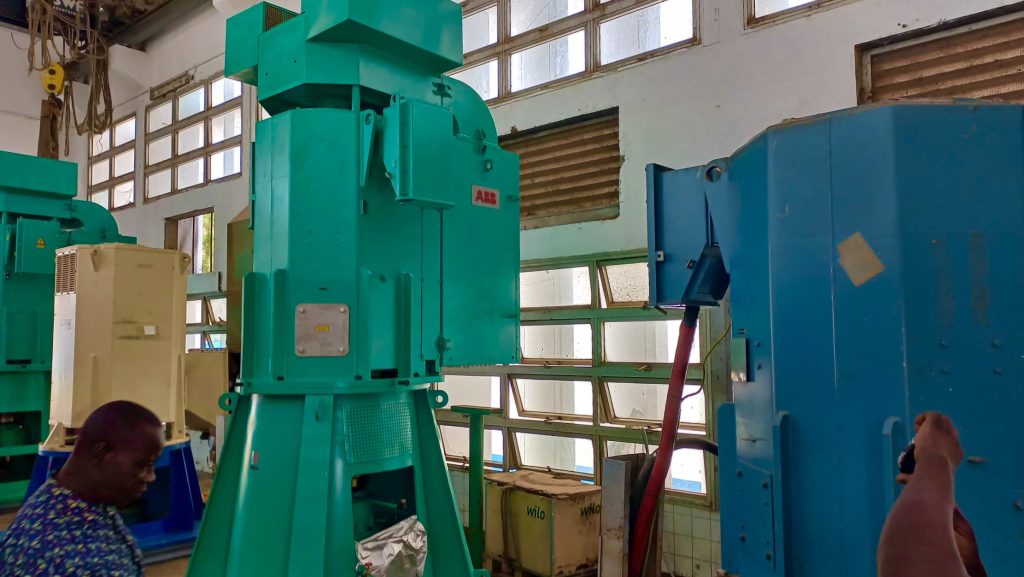
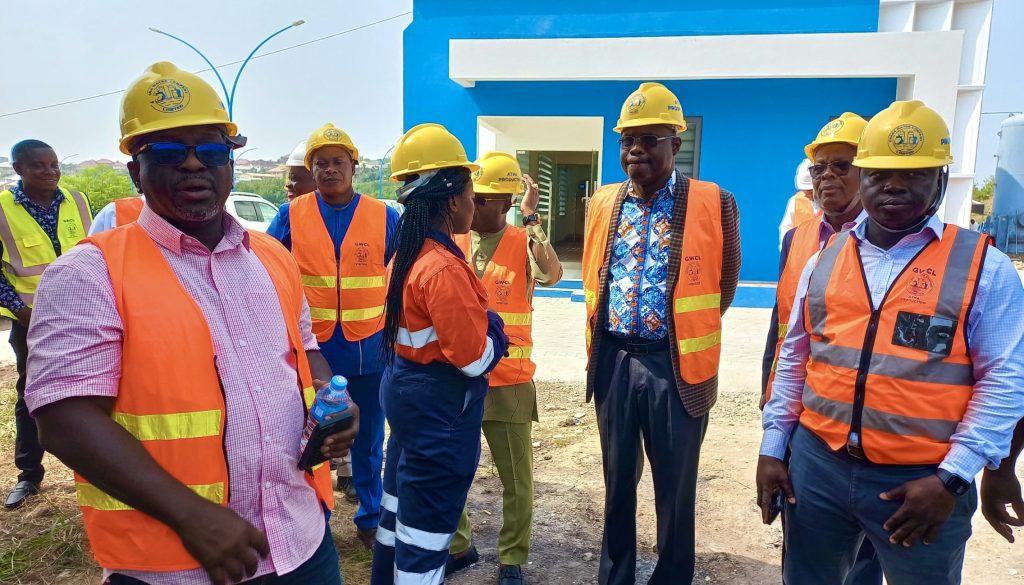
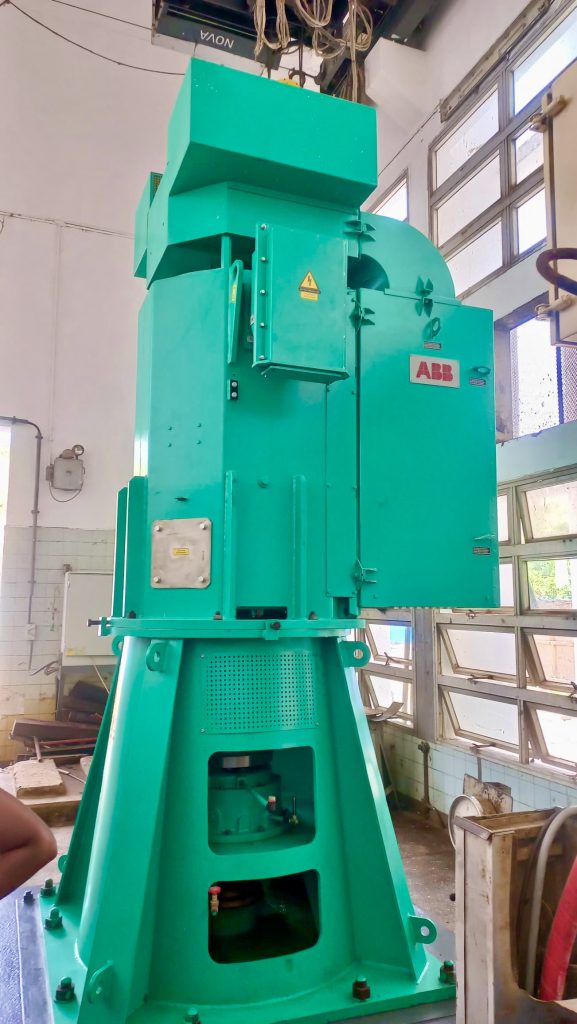
However, according to the Ghana Water Limited there had been problems with some of the old pumps at the intake stations, reducing production to about 20 per cent of the total capacity.
The newly installed system would shore up the 20 per cent shortfall in production which had affected parts of Accra including Achimota, Tesano, North Kanashie, Dansoman and Kasoa corridors.
The new pumps are designed to last for at least 25 years, significantly reducing the need for frequent replacements and operational disruptions.
It also incorporates advanced monitoring features to detect potential issues such as overheating, ensuring timely interventions and minimizing downtime.
Government’s Commitment
To witness the impact of this milestone, the Minister for Sanitation and Water Resources, Madam Lydia Seyram Alhassan toured the Weija facility and visited several communities to ascertain at first hand their water situations.
During her interactions, she assured residents of the government’s commitment to enhancing access to clean and reliable water for all Ghanaians with a significant boost to water supply infrastructure.
She commended GWL for its commitment to addressing water supply challenges and ensuring that essential services reach most if not all coners of the city.
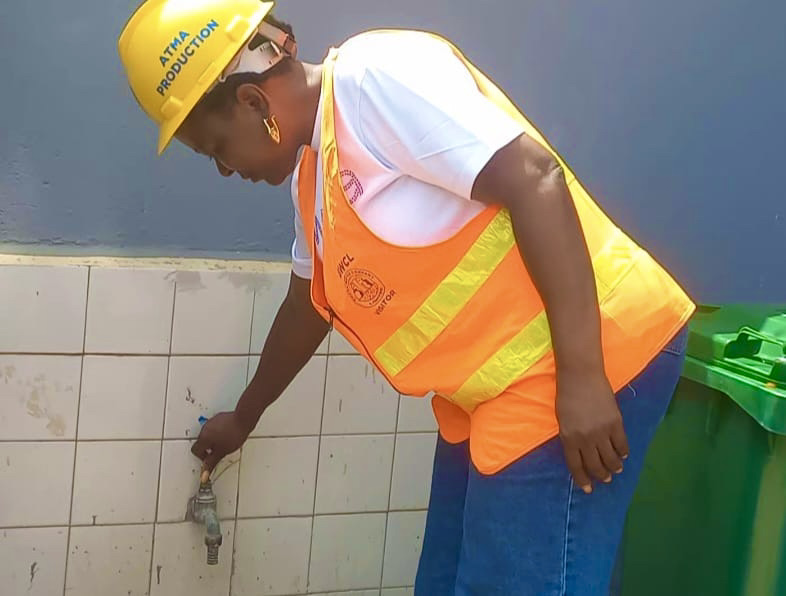
The Minister said the improvements being witnessed in water supply in parts of Accra demonstrated what was possible when resources were put to good use particularly upgrading systems to meet growing water demands.
She said government was working tirelessly to ensure significant progress in water supply system across the country.
“Works are ongoing in the Volta Region on the Keta Water Project which is 71 per cent complete, the Wenchi Water Project also about 72 per cent complete, and Takoradi Water about 74 per cent complete. This is what your government is doing to ensure that there’s an improvement – significant improvement – in the water supply system,” the Sanitation and Water Resources Minister said.
By close of January, Madam Alhassan further assured that two of the remaining pumps at the Weija Treatment Plant would be installed to increase the daily production capacity.
GWL enhancing capacity, effectiveness
Dr Clifford A. Braimah, Managing Director, who had earlier inspected the newly installed pumps, told the media that the improvement in pumping capacity from 120,000 cubic meters to 145,000 cubic meters daily reflected the company’s reflects commitment to serving the people of Accra effectively.
Dr. Braimah, highlighting the importance of the investment and its direct benefits for underserved areas in the city, said the enhancement translated to about 100 liters of water per day for an additional 250,000 people.
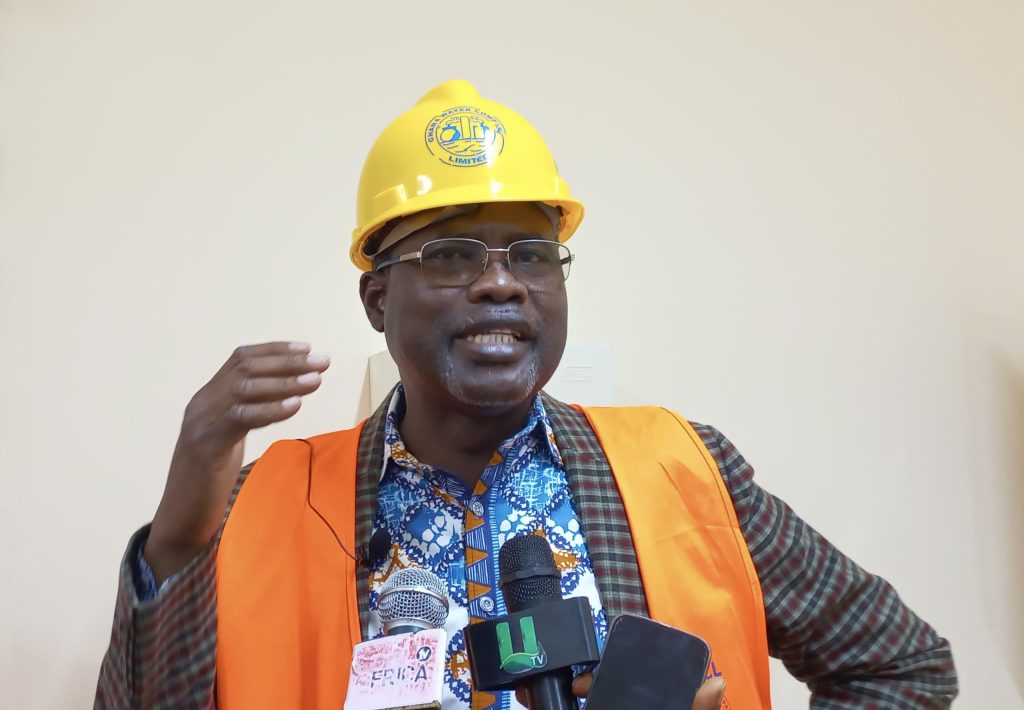
“With the installation of the two additional pumps, the supply chain is expected to grow to include 420,000 individuals,” he added.
The MD said, “This project not only increases capacity but also introduces a more efficient energy use system. The new pumps consume less power while delivering higher output compared to the old ones.”
Therefore, he urged the public to assist in minimizing losses due to leaks and illegal connections and pay their water bills promptly, as consistent revenue was crucial for maintaining and upgrading services.
Dr Braimah noted that, in addition to the current improvements, GWL was planning further expansions to meet the demands of Accra’s growing population as it was in discussions with the Danish Embassy to develop projects that could channel water from Aveyime to Accra.
Renewed Optimism
As the taps continue to run in Sowutuom, Kwashiebu, Old Fadama, and other neighborhoods, residents are embracing the new normal with a sense of optimism.
The once-dreaded water shortages will become a thing of the past, and communities are hopeful that the improvements will be sustained.
For residents like Ms. Kimberly Owusu and Madam Mary Lamptey, the change is more than just a relief; it’s a restoration of dignity and a promise of better days ahead.
GNA